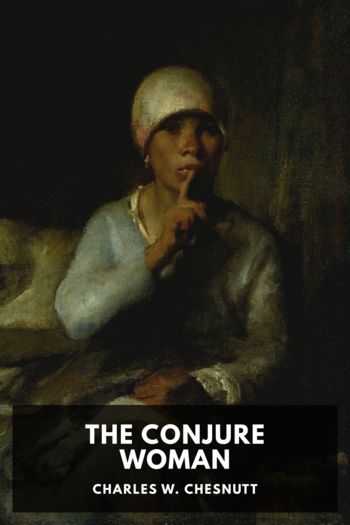The Lives of the Caesars, Suetonius [best book club books for discussion .TXT] 📗

- Author: Suetonius
Book online «The Lives of the Caesars, Suetonius [best book club books for discussion .TXT] 📗». Author Suetonius
He assailed mankind of almost every epoch with no less envy and malice than insolence and cruelty. He threw down the statues of famous men, which for lack of room Augustus had moved from the court of the Capitol to the Campus Martius, and so utterly demolished them that they could not be set up again with their inscriptions entire; and thereafter he forbade the erection of the statue of any living man anywhere, without his knowledge and consent. He even thought of destroying the poems of Homer, asking why he should not have the same privilege as Plato, who excluded Homer from his ideal commonwealth. More than that, he all but removed the writings and the busts of Virgil and of Titus Livius from all the libraries, railing at the former as a man of no literary talent and very little learning, and the latter as a verbose and careless historian. With regard to lawyers too, as if intending to do away with any practice of their profession, he often threatened that he would see to it, by Heaven, that they could give no advice contrary to his wish.
He took from all the noblest of the city the ancient devices of their families, from Torquatus his collar, from Cincinnatus his lock of hair, from Gnaeus Pompeius the surname Great belonging to his ancient race. After inviting Ptolemy, whom I have mentioned before,407 to come from his kingdom and receiving him with honour, he suddenly had him executed for no other reason than that when giving a gladiatorial show, he noticed that Ptolemy on entering the theatre attracted general attention by the splendour of his purple cloak. Whenever he ran across handsome men with fine heads of hair,408 he disfigured them by having the backs of their heads shaved. There was a certain Aesius Proculus, son of a chief centurion, called Colosseros409 because of his remarkable size and handsome appearance; this man Caligula ordered to be suddenly dragged from his seat in the amphitheatre and led into the arena, where he matched him first against a Thracian and then against a heavy-armed gladiator; when Proculus was victor in both contests, Caligula gave orders that he be bound at once, clad in rags, and then put to death, after first being led about the streets and exhibited to the women. In short, there was no one of such low condition or such abject fortune that he did not envy him such advantages as he possessed. Since the king of Nemi410 had now held his priesthood for many years, he hired a stronger adversary to attack him. When an essedarius411 called Porius was vigorously applauded on the day of one of the games for setting his slave free after a victory, Caligula rushed from the amphitheatre in such haste that he trod on the fringe of his toga and went headlong down the steps, fuming and shouting: “The people that rule the world give more honour to a gladiator for a trifling act than to their deified emperors or to the one still present with them.”
He respected neither his own chastity nor that of anyone else. He is said to have had unnatural relations with Marcus Lepidus, the pantomimic actor Mnester, and certain hostages. Valerius Catullus, a young man of a consular family, publicly proclaimed that he had violated the emperor and worn himself out in commerce with him. To say nothing of his incest with his sisters and his notorious passion for the concubine Pyrallis, there was scarcely any woman of rank whom he did not approach. These as a rule he invited to dinner with their husbands, and as they passed by the foot of his couch, he would inspect them critically and deliberately, as if buying slaves, even putting out his hand and lifting up the face of anyone who looked down in modesty; then as often as the fancy took him he would leave the room, sending for the one who pleased him best, and returning soon afterwards with evident signs of what had occurred, he would openly commend or criticise his partner, recounting her charms or defects and commenting on her conduct. To some he personally sent a bill of divorce in the name of their absent husbands, and had it entered in the public records.
In reckless extravagance he outdid the prodigals of all times in ingenuity, inventing a new sort of baths and unnatural varieties of food and feasts; for he would bathe in hot or cold perfumed oils, drink pearls of great price dissolved in vinegar, and set before his guests loaves and meats of gold, declaring that a man ought either to be frugal or Caesar. He even scattered large sums of money among the commons from the roof of the basilica Julia for several days in succession. He also built Liburnian galleys412 with ten banks of oars, with sterns set with gems, particoloured sails, huge spacious baths, colonnades, and banquet-halls, and even a great variety of vines and fruit trees; that on board of them he might recline at table from an early hour, and coast along the shores of Campania amid songs and choruses. He built villas and country houses with utter disregard





Comments (0)